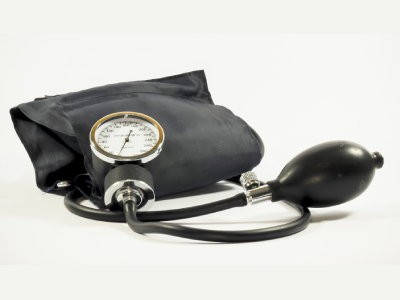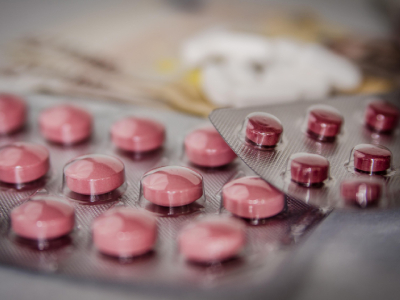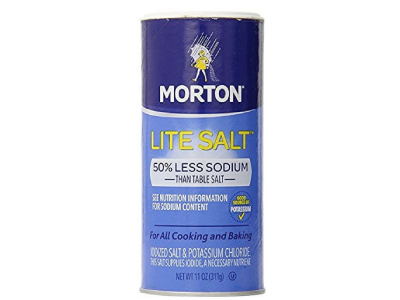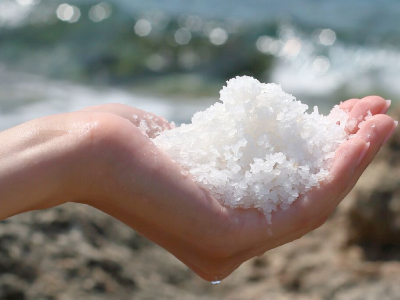Blog

SEPTEMBER 2025 TABLEHOPPING
LETS GET A LITTLE SALTY!
Hypertension is no joke. It’s the most common medical condition in American adults. It’s becoming an increasing problem even amongst children today. Hypertension, as we doctors call it, high blood pressure , is probably the biggest contributor to heart attacks, strokes and kidney failure. Throw diabetes in the mix , which many of you have, and you have the two biggest health issues in America today.
Well, we can’t even agree on the definition of hypertension. It used to be an acceptable number for the systolic to be 100 plus your age…so if you were 60 years old an acceptable BP would be 158/90. Nowadays the cutoff for normal is much lower …120/80 is the new standard according to the AHA and ACC. That often requires 2 or 3 medications. Critics say the new lower standards do not provide much additional improvement in life expectancy and there are real dangers to lowering the blood pressure too much.





So, you go to the doctor’s office and they check your blood pressure. If it’s up they start a pill. What they should do is repeat it after you have been resting a few minutes. If it’s still up then, you should be instructed to get some blood pressure readings at home. The machines are cheap, easy to use and reliable. Now, if your blood pressure is up at home then it’s time for action. Sure you can start a pill, that’s what everyone does but I am going to suggest you look at this a little differently. vast majority of people have hypertension because they are out of balance…maybe it’s too little nitric oxide, maybe it’s too little arginine, probably it’s too little magnesium and potassium but routine lab test for these latter two electrolytes reflect serum levels not the actual total levels of these critical electrolytes. If you get the potassium and magnesium levels checked and they are low….that’s a real sign of total body deficiency. But if the levels are “normal” you have no way of knowing your true reserves. Still, unless you have kidney disease or are already on medications that may affect potassium, if your blood pressure is low you should consider supplementing these two electrolytes and see if it lowers your blood pressure. Of course, you should try and get these in by eating a healthy diet but if your blood pressure is up you may need to supplement with capsules. It’s easy to have your health care provider check these labs anytime.
Your doctor will almost certainly tell you to reduce your salt. What he should say is cut down on processed foods. The literature I read says it’s not the sodium intake that’s important.. it’s the ratio of sodium intake and potassium intake that determines your blood pressure. You don’t have to measure your intake…you can measure your output which directly reflects your intake. Ask your doctor to do a 24 hour urine collection to assess the sodium and potassium ratio. The literature says if your urinary sodium is higher than your urinary potassium you will have high blood pressure and it’s a direct predictor of stroke likelihood. You can’t get a random urine sample …it has to be a 24 hour sample to be accurate. This is considered to be a “gold standard” test but we don’t order it often as it’s “inconvenient.” Well, before I commit to taking medication for the rest of my life I would be inconvenienced a little. If your ratio shows too much sodium to potassium …you decrease your sodium….(mostly from processed foods) and increase your potassium and your blood pressure should improve. Again, do this with your doctor so he can keep an eye on the labs but what do you have to lose. People don’t have heart attacks and strokes because their blood pressure is high for a day a week or months…it takes years of increased pressure to lead to ruin.
Of course, treating sleep apnea, de stressing, and getting exercise will all help your blood pressure. But today we are focusing on the electrolytes. The first thing you should do if the doctor says your blood pressure is up is to switch to low salt. Mortons sells salt…that’s sodium chloride. They also sell a low sodium version called Morton’s lite-salt. That’s roughly 50/50 sodium and potassium so you can still salt your food and be getting a good dose of potassium to offset the sodium. The taste is the same, at least to me.
Some references…Let’s start with an article from CIRCULATION
Association Between Urinary Sodium and Potassium Excretion and Blood Pressure Among Adults in the United States: National Health and Nutrition Examination Survey, 2014
Their conclusion? These cross-sectional results show a strong dose-response association between urinary sodium excretion and blood pressure, and an inverse association between urinary potassium excretion and blood pressure, in a nationally representative sample of US adults.
Directly from the NIH January 26, 2009 “The results, published in the January 12, 2009, issue of the Archives of Internal Medicine, showed a significant increase in the risk of cardiovascular disease with higher ratios of sodium to potassium. A high sodium/potassium ratio was a stronger indicator of increased risk among the participants in the study than levels of either sodium or potassium alone.”
In support of changing to potassium enriched salt is the Finnish Experience. Finland had one of the highest rates of stroke and heart attacks of any country in the world. They swapped out regular salt for the potassium enriched salt and strokes dropped by over 50 percent. Now there were other interventions etc etc but those are really dramatic reductions.
So here is your strategy. When you next go to the doctor say this…”I am interested in changing my salt shaker to one that has a 50-50 mix of potassium and sodium. Yes, I know I should keep my salt intake down but the 50-50 mix seems to make a difference. Do you see any problem with my trying that? I will keep track of my blood pressures and report back and have my labs checked in 2-3 months. “ You want to be scientific? Ask your doctor to order the 24 hour sodium and potassium urine collection and see for yourself what happens to your urine numbers and your blood pressure as you make changes. It’s a test that quest and labcorp easily do and it’s covered by your insurance. Just tell the doctor to write hypertension as the diagnosis and it’s off to the races…
Until next month…get well and stay well
JT BARRY MD

Leave a Reply